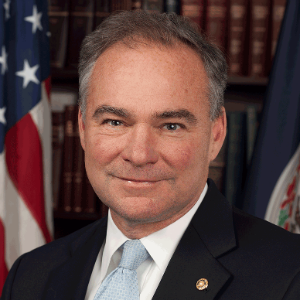U.S. Senator Tim Kaine, a member of the Senate Foreign Relations and Armed Services Committees, released the following statement after President Trump’s address to the nation on Afghanistan:

“Congress should now have a long-overdue debate and vote on our ongoing military action against ISIS, al-Qaeda, and the Taliban, including in Afghanistan. The majority of us weren’t in Congress in 2001 to vote on the Authorization for Use of Military Force (AUMF) that’s still being used to justify our current military action, and we owe it to our servicemembers and the American people to define the U.S. mission and publicly reaffirm our commitment to this fight. Senator Flake and I have introduced an AUMF to serve as the starting point for this discussion, and I hope the Senate will stop dodging its responsibility and finally pass an updated AUMF.”
Kaine has long been a leading voice in the Senate on Congress’s role in authorizing military action and the need for a new AUMF against ISIS. In 2013, Kaine voted in the Senate Foreign Relations Committee to authorize military force against Syria following Assad’s use of chemical weapons against his own people.
In May of 2017, Kaine and U.S. Senator Jeff Flake introduced a bipartisan AUMF against the Islamic State of Iraq and Syria (ISIS), al-Qaeda, and the Taliban. Kaine and Flake’s bipartisan AUMF explicitly authorizes military action against the three terrorist groups, gives Congress an oversight role it currently lacks over who can be considered to be “associated” with the terrorist groups and in which countries military action can take place, and provides an expedited process for Congress to re-authorize this AUMF in five years. Lastly, it repeals the 2001 and 2002 AUMFs.
Full text of the AUMF is available here.










